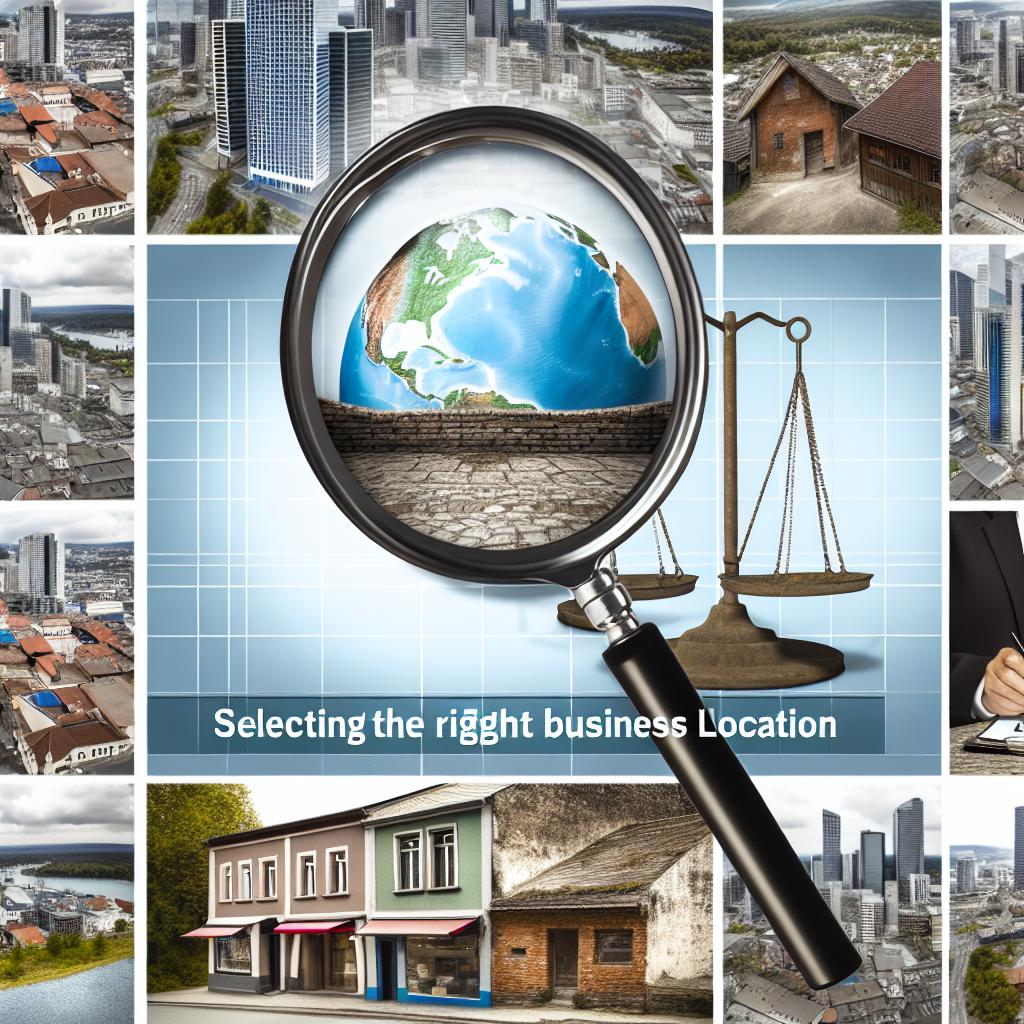
How to Choose the Right Business Location
Understanding the Importance of Location in Business
Choosing the right location for your business can significantly impact its success. When considering a location, it’s essential to understand that this decision affects various aspects such as operating costs, accessibility to customers, and even potential growth opportunities.
In the world of business, every decision you make can significantly influence your success. Among these decisions, selecting the right business location stands as one of the most crucial. Not only does it affect your operating costs, but also your accessibility to customers and potential for growth. Therefore, a comprehensive understanding of the factors that influence this decision is indispensable.
Factors to Consider When Selecting a Business Location
When determining the best location for your business, it is essential to consider several key factors. Each factor plays a unique role in defining how your business will operate and succeed in its chosen environment.
1. Customer Accessibility
One of the primary considerations should be customer accessibility. It is crucial to ensure that your business location is convenient for your target audience. This involves analyzing the demographics of the area to ensure they align with your business strategy. A strategically located business closer to your target market can potentially increase foot traffic, which is particularly crucial for retail and restaurant businesses. For instance, a coffee shop located near an office complex might attract more customers than one situated in a remote location.
2. Proximity to Competitors
Another significant factor is the proximity to competitors. It’s essential to assess the presence of other similar businesses in the desired area. Being too close to competitors can be detrimental unless your business offers a distinctive advantage or niche. However, sometimes being part of a cluster can also be beneficial. For instance, shopping districts or food courts are areas where customers are likely to compare options, and being part of such a cluster can increase your visibility and customer visits.
3. Cost Considerations
Cost considerations are also a critical element in selecting a business location. Evaluate the expenses associated with the location, including rent, utilities, necessary renovations, and property taxes. While higher-cost locations might provide better opportunities, they should align with your budget and should not hinder your financial stability. The key is to balance the potential benefits of a location with its costs to ensure that the investment is sound.
4. Legal and Zoning Regulations
Understanding legal and zoning regulations is another vital step in choosing your business location. It is crucial to check local zoning laws and regulations before settling on a location. These laws determine what type of business can operate in certain areas and ensure that your business complies with these regulations to avoid future legal complications. Conducting thorough research into these aspects can save a lot of hassle and financial loss down the line.
5. Safety and Security
The safety and security of a location are paramount for both employees and customers. Ensure that the chosen location is safe by checking crime rates and considering the security measures implemented in the area. A secure environment can significantly enhance the customer experience and protect your business assets. For example, businesses in areas with low crime rates often attract a higher number of customers.
Long-Term Strategic Alignment
When selecting a business location, it is essential to think beyond the present. A business location should not only match your current needs but also align with your long-term business strategy. Consider the potential for business growth and expansion. It may be beneficial to secure a flexible lease agreement to provide the option to expand or move as your needs change. Planning for future expansion can save time and cost that might be incurred from relocating to a larger or more suitable space in the future.
Utilizing Technology for Location Selection
Technology has revolutionized the way businesses select locations today. By taking advantage of these technological tools, businesses can make more informed and data-driven decisions. Tools like geographic information systems (GIS) and data analytics provide valuable insights into demographic patterns, customer behavior, and market trends. GIS, for example, allows businesses to visualize data on maps that can show customer densities or competitor locations, providing a strategic advantage in location selection. These tools offer a more data-driven approach to decision-making, helping businesses identify optimal locations for their needs. For further exploration of technology-based solutions, you might consider visiting resources like Business Location Strategies for more insights.
Conclusion
In conclusion, the choice of business location is a strategic decision involving multiple considerations. By thoroughly evaluating these factors and their alignment with your business goals, you can select a location that supports growth, enhances customer experience, and contributes to the success of your business. The right location choice is a proactive step toward achieving a competitive advantage, helping you to better serve your customers and leverage market opportunities. Such strategic planning ensures future sustainability and success, providing a robust foundation upon which your business can thrive.


